Fleurs du Mal Magazine


.jpg)

Monica Richter: Waterpainting 2008-2
kempis poetry magazine
More in: Monica Richter
.jpg)
Das Unglück des Junggesellen
Franz Kafka (1883-1924)
Es scheint so arg, Junggeselle zu bleiben, als alter Mann unter schwerer Wahrung der Würde um Aufnahme zu bitten, wenn man einen Abend mit Menschen verbringen will, krank zu sein und aus dem Winkel seines Bettes wochenlang das leere Zimmer anzusehn, immer vor dem Haustor Abschied zu nehmen, niemals neben seiner Frau sich die Treppe hinaufzudrängen, in seinem Zimmer nur Seitentüren zu haben, die in fremde Wohnungen führen, sein Nachtmahl in einer Hand nach Hause zu tragen, fremde Kinder anstaunen zu müssen und nicht immerfort wiederholen zu dürfen: »Ich habe keine«, sich im Aussehn und Benehmen nach ein oder zwei Junggesellen der Jugenderinnerungen auszubilden
So wird es sein, nur daß man auch in Wirklichkeit heute und später selbst dastehen wird, mit einem Körper und einem wirklichen Kopf, also auch einer Stirn, um mit der Hand an sie zu schlagen.
.jpg)
Franz Kafka: Betrachtung 1913, Für M.B.
fleursdumal.nl magazine
More in: Franz Kafka, Kafka, Franz, Kafka, Franz
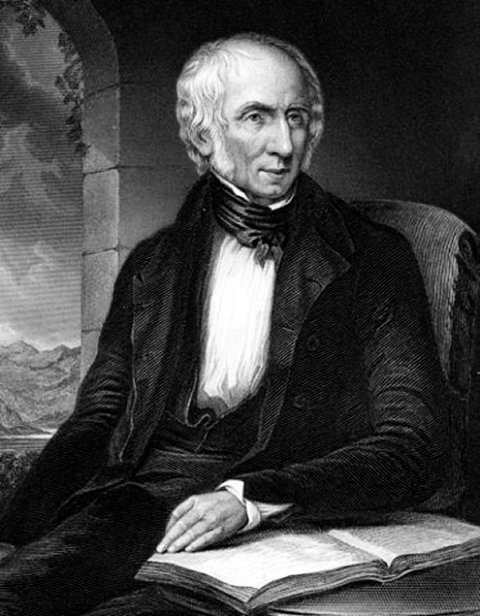
William Wordsworth
(1770-1850)
Rob Roy’s Grave
The History of Rob Roy is sufficiently known; his Grave is near the head of Loch Ketterine, in one of those small Pin-fold-like Burial-grounds, of neglected and desolate appearance, which the Traveller meets with in the Highlands of Scotland.
A famous Man is Robin Hood,
The English Ballad-singer’s joy!
And Scotland has a Thief as good,
An Outlaw of as daring mood,
She has her brave ROB ROY!
Then clear the weeds from off his Grave,
And let us chaunt a passing Stave
In honour of that Hero brave!
Heaven gave Rob Roy a dauntless heart,
And wondrous length and strength of arm:
Nor craved he more to quell his Foes,
Or keep his Friends from harm.
Yet was Rob Roy as wise as brave;
Forgive me if the phrase be strong;–
Poet worthy of Rob Roy
Must scorn a timid song.
Say, then, that he was wise as brave;
As wise in thought as bold in deed:
For in the principles of things
He sought his moral creed.
Said generous Rob, "What need of Books?
Burn all the Statutes and their shelves:
They stir us up against our Kind;
And worse, against Ourselves."
"We have a passion, make a law,
Too false to guide us or controul!
And for the law itself we fight
In bitterness of soul."
"And, puzzled, blinded thus, we lose
Distinctions that are plain and few:
These find I graven on my heart:
That tells me what to do."
"The Creatures see of flood and field,
And those that travel on the wind!
With them no strife can last; they live
In peace, and peace of mind."
"For why?–because the good old Rule
Sufficeth them, the simple Plan,
That they should take who have the power,
And they should keep who can."
"A lesson which is quickly learn’d,
A signal this which all can see!
Thus nothing here provokes the Strong
To wanton cruelty."
"All freakishness of mind is check’d;
He tam’d, who foolishly aspires;
While to the measure of his might
Each fashions his desires."
"All Kinds, and Creatures, stand and fall
By strength of prowess or of wit:
Tis God’s appointment who must sway,
And who is to submit."
"Since then," said Robin, "right is plain,
And longest life is but a day;
To have my ends, maintain my rights,
I’ll take the shortest way."
And thus among these rocks he liv’d,
Through summer’s heat and winter’s snow:
The Eagle, he was Lord above,
And Rob was Lord below.
So was it–would, at least, have been
But through untowardness of fate:
For Polity was then too strong;
He came an age too late,
Or shall we say an age too soon?
For, were the bold Man living now,
How might he flourish in his pride,
With buds on every bough!
Then rents and Factors, rights of chace,
Sheriffs, and Lairds and their domains
Would all have seem’d but paltry things,
Not worth a moment’s pains.
Rob Roy had never linger’d here,
To these few meagre Vales confin’d;
But thought how wide the world, the times
How fairly to his mind!
And to his Sword he would have said,
"Do Thou my sovereign will enact
From land to land through half the earth!
Judge thou of law and fact!"
"Tis fit that we should do our part;
Becoming, that mankind should learn
That we are not to be surpass’d
In fatherly concern."
"Of old things all are over old,
Of good things none are good enough:–
We’ll shew that we can help to frame
A world of other stuff."
"I, too, will have my Kings that take
From me the sign of life and death:
Kingdoms shall shift about, like clouds,
Obedient to my breath."
And, if the word had been fulfill’d,
As might have been, then, thought of joy!
France would have had her present Boast;
And we our brave Rob Roy!
Oh! say not so; compare them not;
I would not wrong thee, Champion brave!
Would wrong thee no where; least of all
Here standing by thy Grave.
For Thou, although with some wild thoughts,
Wild Chieftain of a Savage Clan!
Hadst this to boast of; thou didst love
The liberty of Man.
And, had it been thy lot to live
With us who now behold the light,
Thou would’st have nobly stirr’d thyself,
And battled for the Right.
For Robin was the poor Man’s stay
The poor man’s heart, the poor man’s hand;
And all the oppress’d, who wanted strength,
Had Robin’s to command.
Bear witness many a pensive sigh
Of thoughtful Herdsman when he strays
Alone upon Loch Veol’s Heights,
And by Loch Lomond’s Braes!
And, far and near, through vale and hill,
Are faces that attest the same;
And kindle, like a fire new stirr’d,
At sound of ROB ROY’s name.
.jpg)
William Wordsworth poetry
kempis poetry magazine
More in: Wordsworth, William
.jpg)
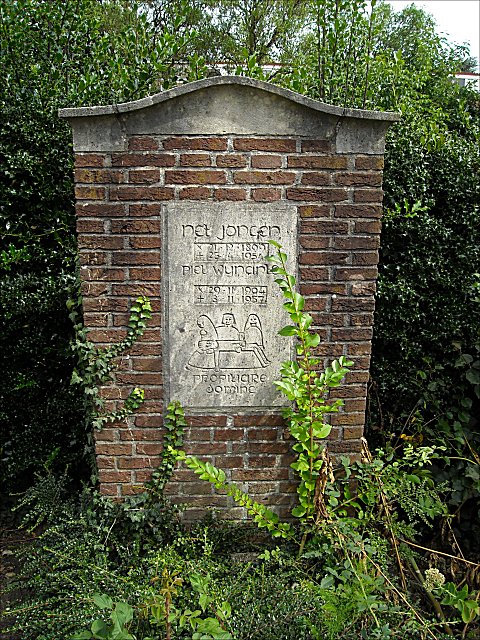
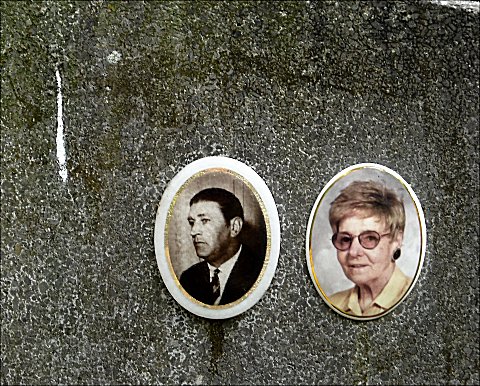


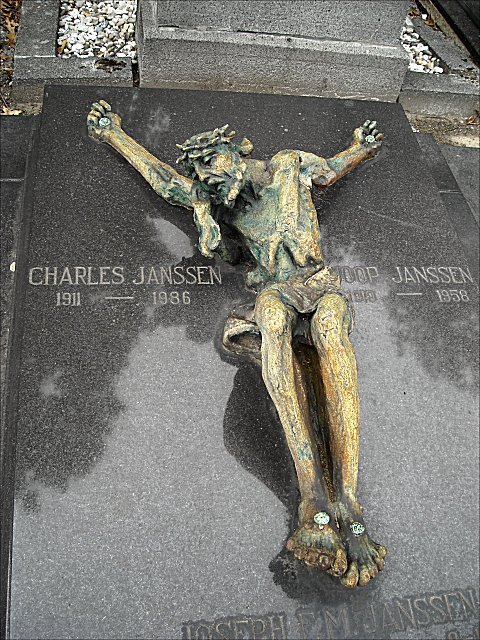
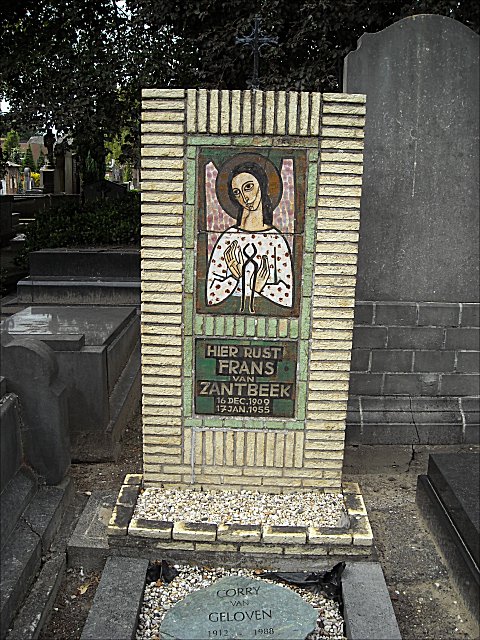
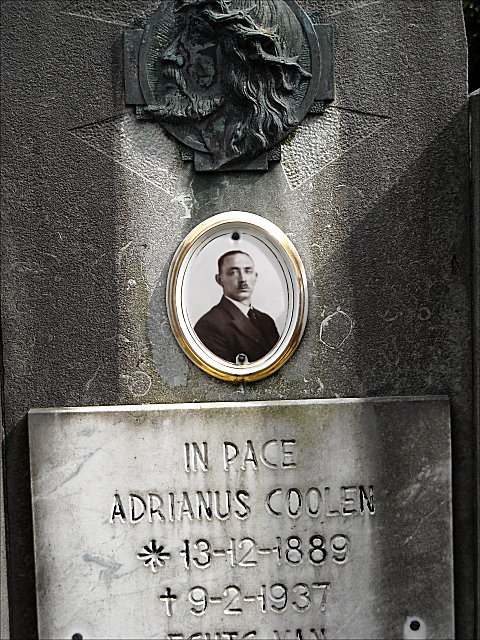
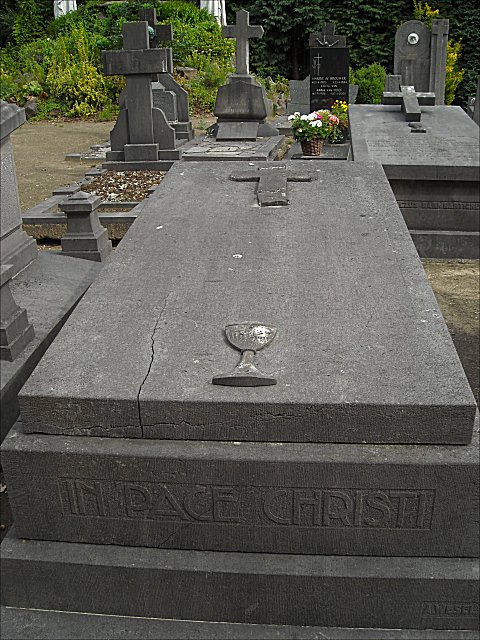
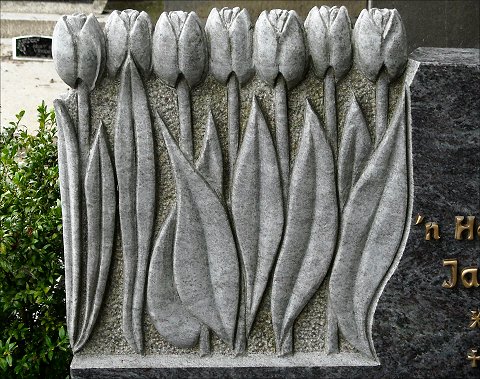

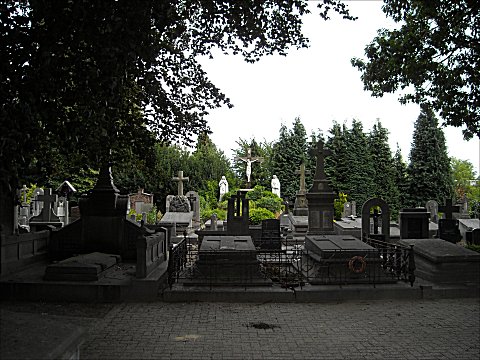
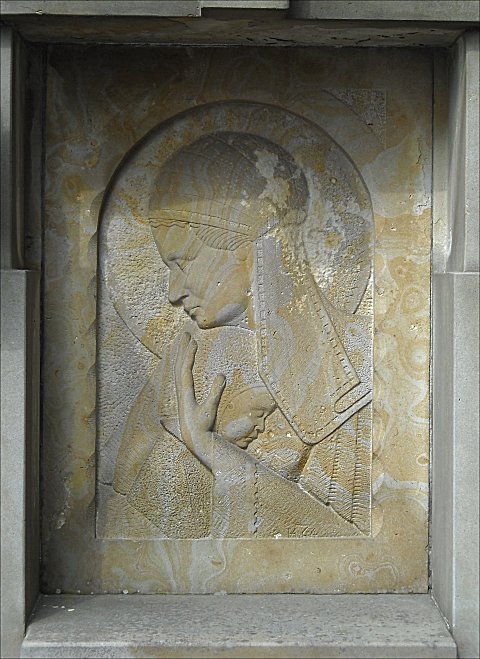
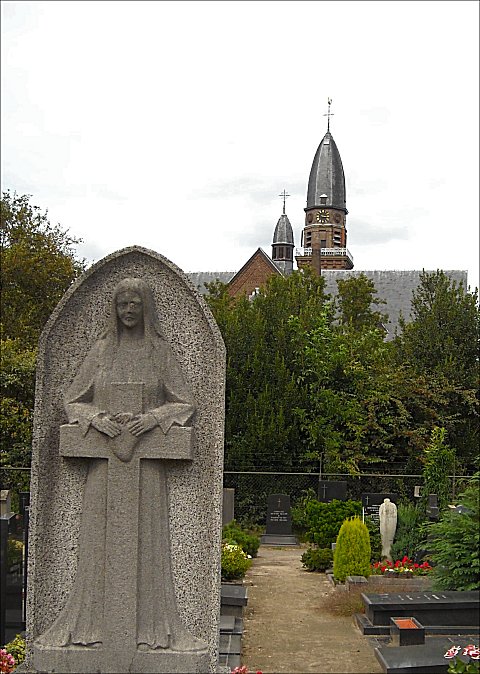

.jpg)
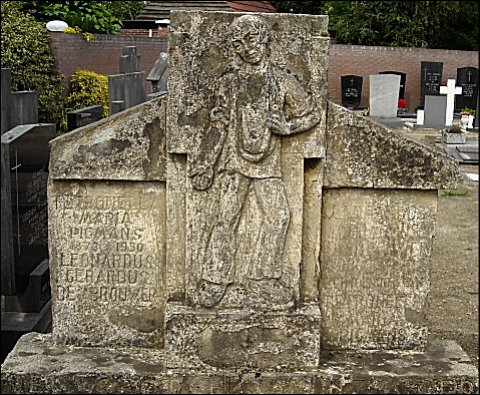
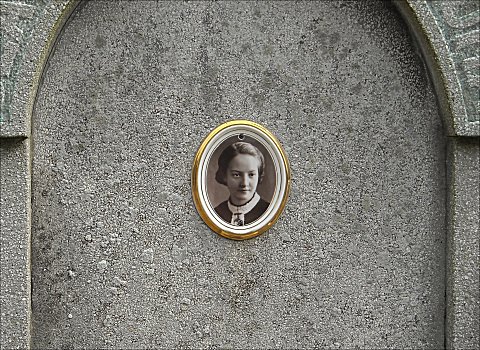

G a l e r i e d e s M o r t s XII B
Les Morts de Tilburg NL (Korvel) – © photos kempis
kempis poetry magazine – magazine for art & literature

m u s e u m o f l o s t c o n c e p t s
More in: Galerie des Morts
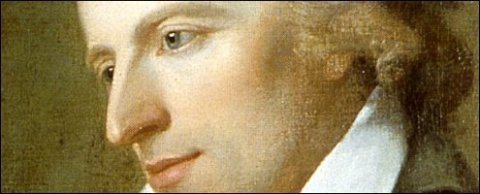
F r i e d r i c h v o n S c h i l l e r
(1759-1805)
A n G o e t h e
(als er den Mahoment von Voltaire auf die Bühne brachte)
Du selbst, der uns von falschem Regelzwange
Zur Wahrheit und Natur zurückgeführt,
Der, in der Wiege schon ein Held, die Schlange
Erstickt, die unsern Genius umschnürt,
Du, den die Kunst, die göttliche, schon lange
Mit ihrer reinen Priesterbinde ziert,
Du opferst auf zertrümmerten Altären
Der Aftermuse, die wir nicht mehr ehren?
Einheim’scher Kunst ist dieser Schauplatz eigen,
Hier wird nicht fremden Götzen mehr gedient;
Wir können mutig einen Lorbeer zeigen,
Der auf dem deutschen Pindus selbst gegrünt.
Selbst in der Künste Heiligtum zu steigen,
Hat sich der deutsche Genius erkühnt,
Und auf der Spur des Griechen und des Britten
Ist er dem bessern Ruhme nachgeschritten.
Denn dort, wo Sklaven knien, Despoten walten,
Wo sich die eitle Aftergröße bläht,
Da kann die Kunst das Edle nicht gestalten,
Von keinem Ludwig wird es ausgesät;
Aus eigner Fülle muss es sich entfalten,
Es borget nicht von ird’scher Majestät,
Nur mit der Wahrheit wird er sich vermählen,
Und seine Glut durchflammt nur freie Seelen.
Drum nicht, in alte Fesseln uns zu schlagen,
Erneuerst du dies Spiel der alten Zeit,
Nicht, uns zurückzuführen zu den Tagen
Charakterloser Minderjährigkeit.
Es wär’ ein eitel und vergeblich Wagen
Zu fallen ins bewegte Rad der Zeit;
Geflügelt fort entführen es die Stunden;
Das Neue kommt, das Alte ist verschwunden.
Erweitert jetzt ist des Theaters Enge,
In seinem Raume drängt sich eine Welt;
Nicht mehr der Worte rednerisch Gepränge,
Nur der Natur getreues Bild gefällt;
Verbannet ist der Sitten falsche Strenge,
Und menschlich handelt, menschlich fühlt der Held.
Die Leidenschaft erhebt die freien Töne,
Und in der Wahrheit findet man das Schöne.
Doch leicht gezimmert nur ist Thespis Wagen,
Und er ist gleich dem acheront’schen Kahn;
Nur Schatten und Idole kann er tragen,
Und drängt das rohe Leben sich heran,
So droht das leichte Fahrzeug umzuschlagen,
Das nur die flücht’gen Geister fassen kann.
Der Schein soll nie die Wirklichkeit erreichen,
Und siegt Natur, so muss die Kunst entweichen.
Denn auf dem bretternen Gerüst der Szene
Wird eine Idealwelt aufgetan.
Nichts sei hier wahr und wirklich, als die Träne,
Die Rührung ruht auf keinem Sinnenwahn.
Aufrichtig ist die wahre Melpomene,
Sie kündigt nichts als eine Fabel an,
Und weiß durch tiefe Wahrheit zu entzücken;
Die falsche stellt sich wahr, um zu berücken.
Es droht die Kunst vom Schauplatz zu verschwinden,
Ihr wildes Reich behauptet Phantasie;
Die Bühne will sie wie die Welt entzünden,
Das Niedrigste und Höchste menget sie.
Nur bei dem Franken war noch Kunst zu finden,
Erschwang er gleich ihr hohes Urbild nie:
Gebannt in unveränderlichen Schranken
Hält er sie fest, und nimmer darf sie wanken.
Ein heiliger Bezirk ist ihm die Szene;
Verbannt aus ihrem festlichen Gebiet
Sind der Natur nachlässig rohe Töne,
Die Sprache selbst erhebt sich ihm zum Lied:
Es ist ein Reich des Wohllauts und der Schöne.
In edler Ordnung greifet Glied in Glied,
Zum ernsten Tempel füget sich das Ganze,
Und die Bewegung borget Reiz vom Tanze,
Nicht Muster zwar darf uns der Franke werden,
Aus seiner Kunst spricht kein lebend’ger Geist;
Des falschen Anstands prunkende Gebärden
Verschmäht der Sinn, der nur das Wahre preist!
Ein Führer nur zum Bessern soll er werden,
Er komme, wie ein abgeschiedner Geist,
Zu reinigen die oft entweihte Szene
Zum würd’gen Sitz der alten Melpomene.
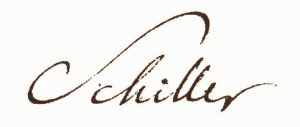
Friedrich von Schiller Gedichte
kempis poetry magazine

More in: Schiller, Friedrich von
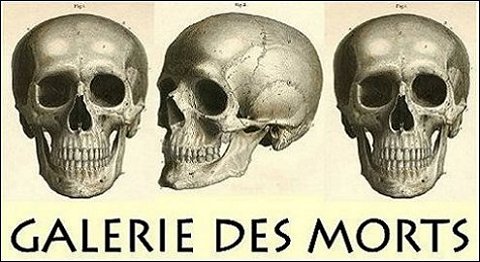
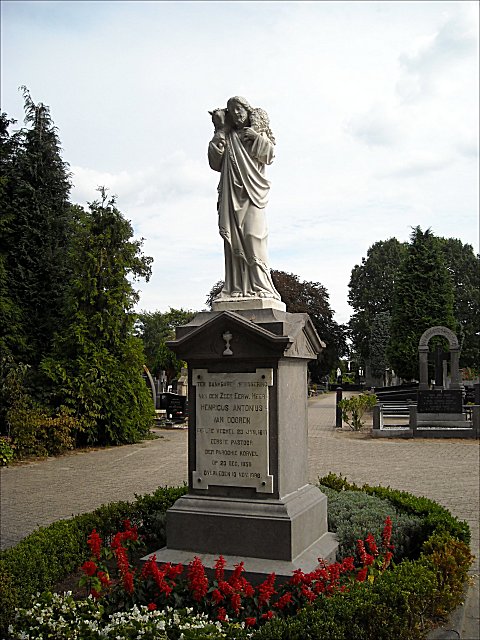
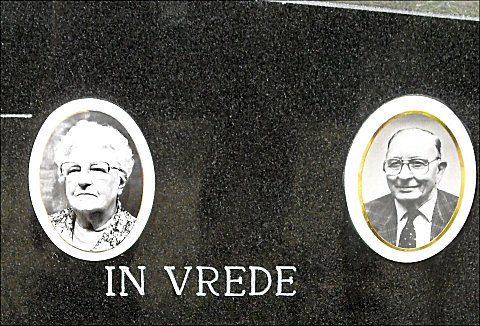
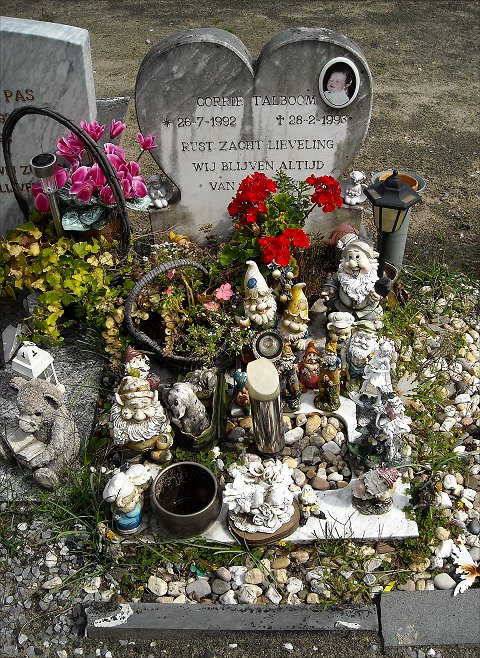

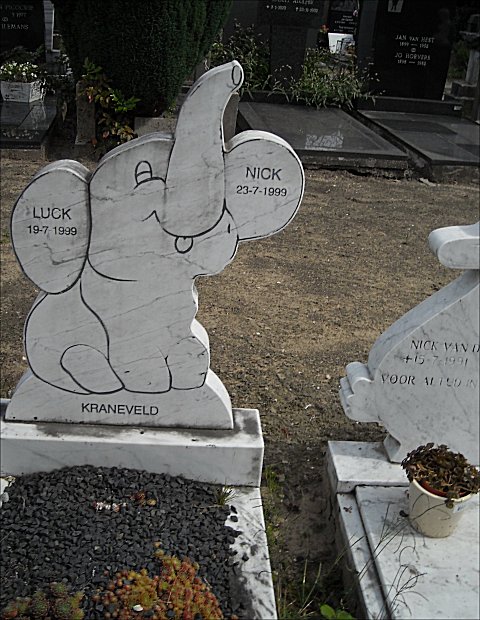
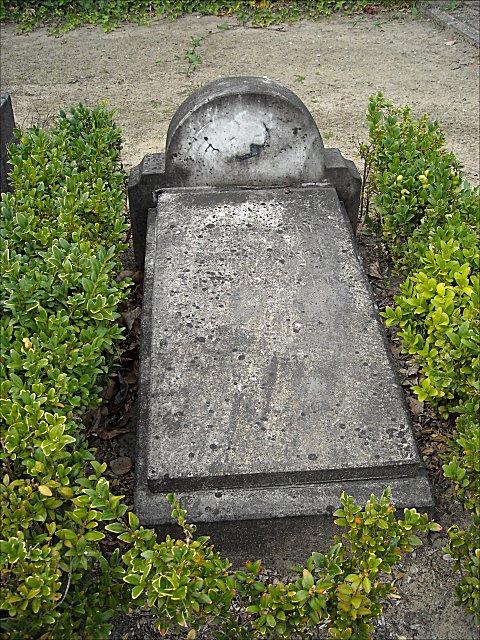

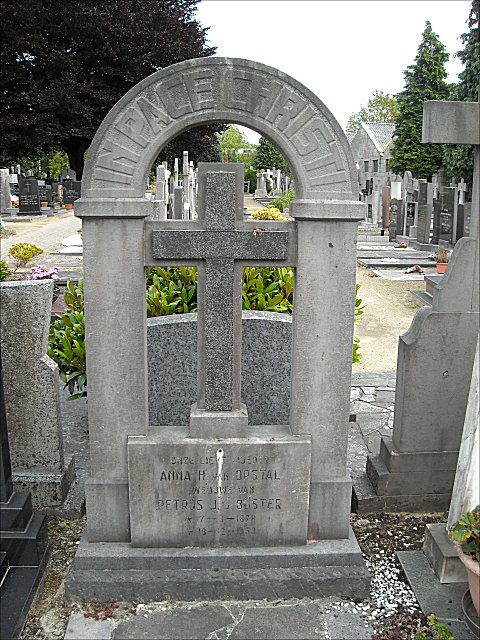
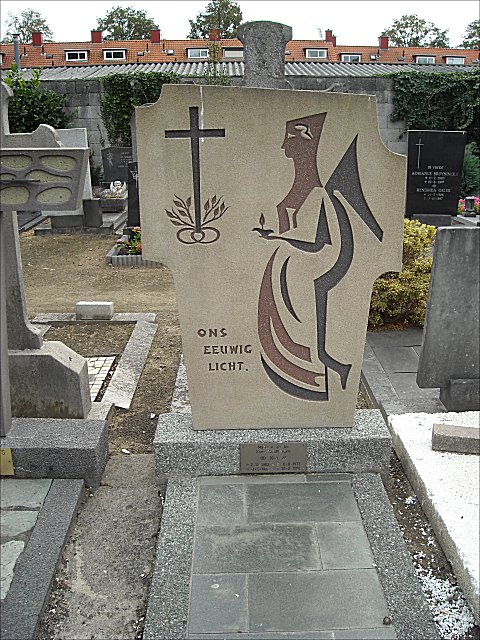
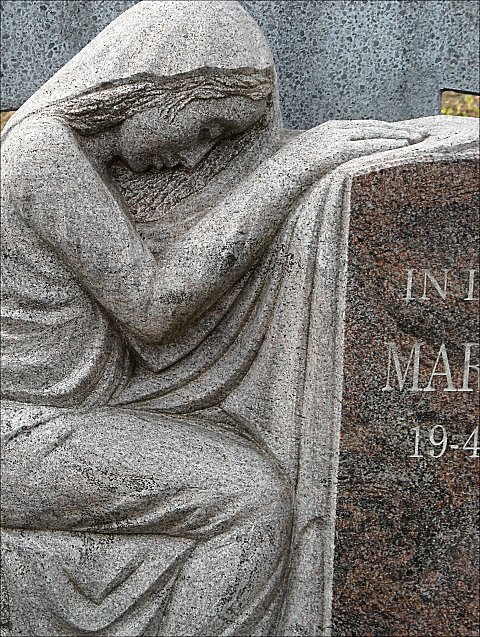
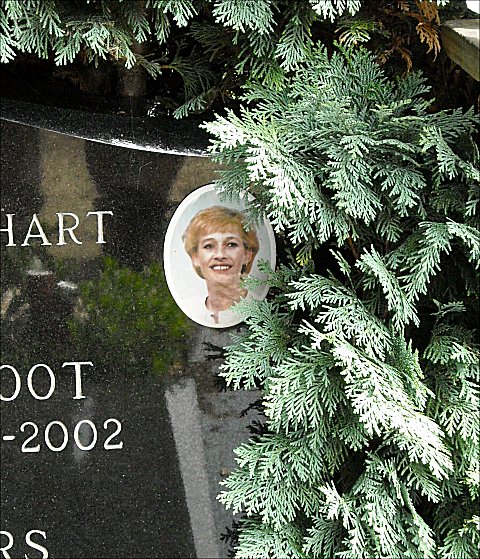
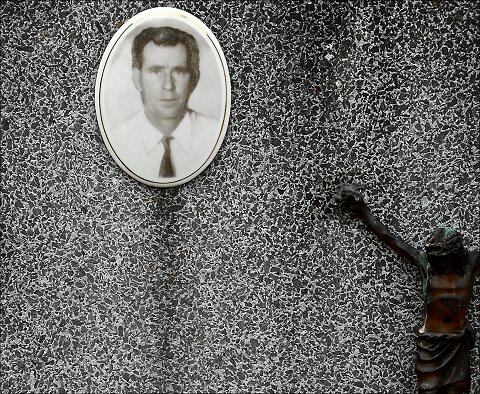
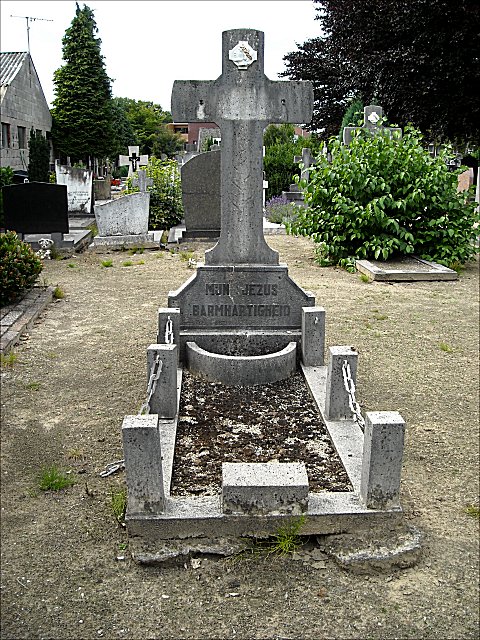
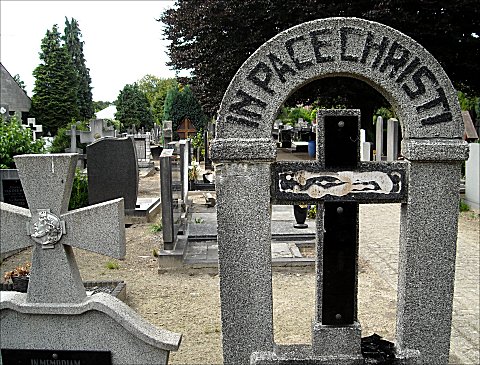
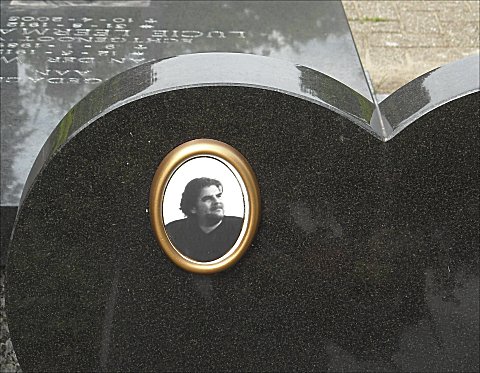
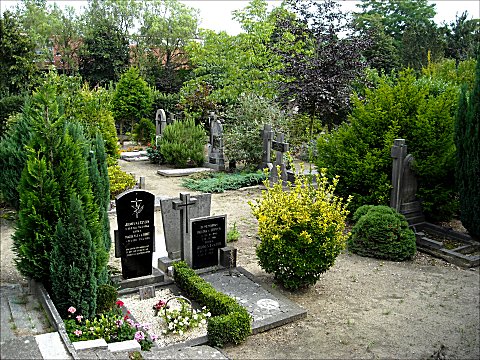
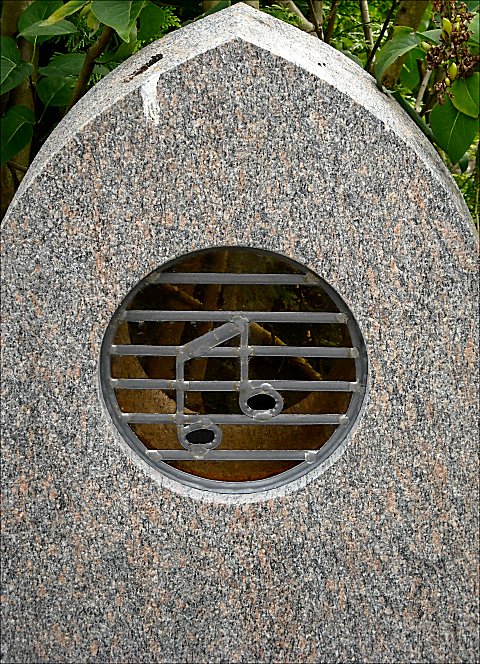
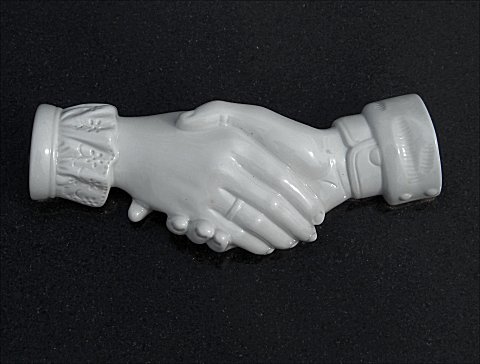
G a l e r i e d e s M o r t s XII A
Les Morts de Tilburg NL (Korvel) – © photos kempis
kempis poetry magazine – magazine for art & literature
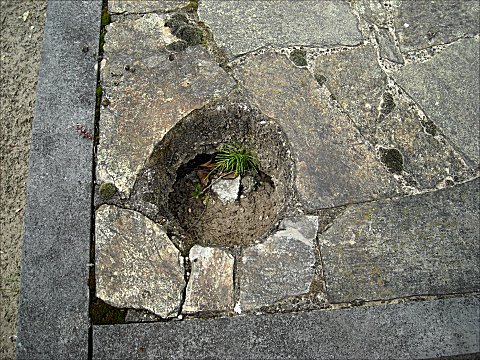
m u s e u m o f l o s t c o n c e p t s
More in: Galerie des Morts
.jpg)
G e r a r d M a n l e y H o p k i n s
(1844-1889)
H e n r y P u r c e l l
The poet wishes well to the divine genius of Purcell and praises him that, whereas other musicians have given utterance to the moods of man’s mind, he has, beyond that, uttered in notes the very make and species of man as created both in him and in all men generally.
Have, fair fallen, O fair, fair have fallen, so dear
To me, so arch-especial a spirit as heaves in Henry Purcell,
An age is now since passed, since parted; with the reversal
Of the outward sentence low lays him, listed to a heresy, here.
Not mood in him nor meaning, proud fire or sacred fear,
Or love or pity or all that sweet notes not his might nursle:
It is the forgèd feature finds me; it is the rehearsal
Of own, of abrupt self there so thrusts on, so throngs the ear.
Let him Oh! with his air of angels then lift me, lay me! only I’ll
Have an eye to the sakes of him, quaint moonmarks, to his pelted plumage under
Wings: so some great stormfowl, whenever he has walked his while
The thunder-purple seabeach plumèd purple-of-thunder,
If a wuthering of his palmy snow-pinions scatter a colossal smile
Off him, but meaning motion fans fresh our wits with wonder.
![]()
Gerard Manley Hopkins poetry
kempis poetry magazine
More in: Hopkins, Gerard Manley
.jpg)


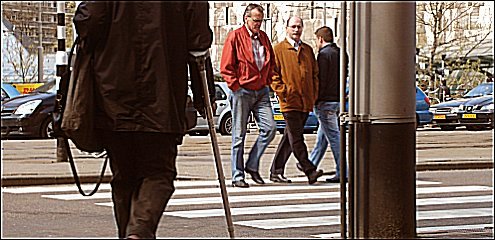



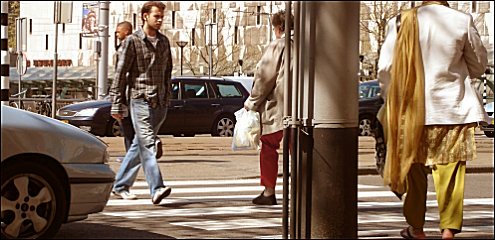
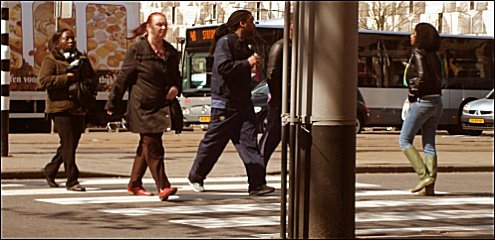
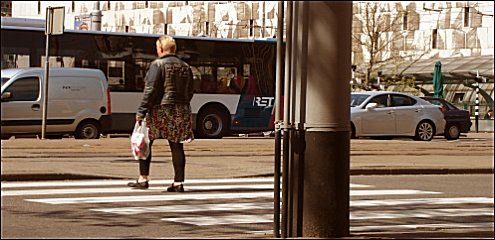
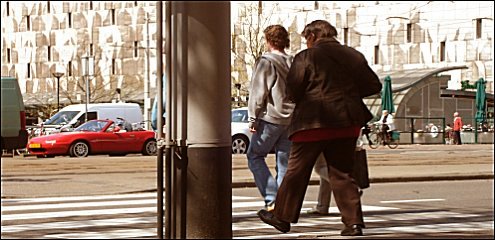
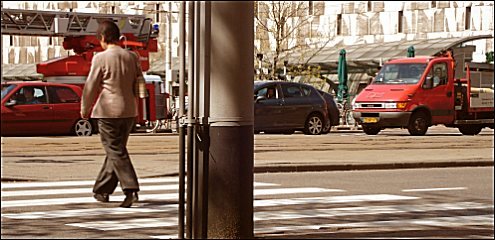

Monica Richter:
Rough Crossing
Rotterdam 2009
kempis poetry magazine – magazine for art & literature
m u s e u m o f l o s t c o n c e p t s
More in: Monica Richter, Richter, Monica
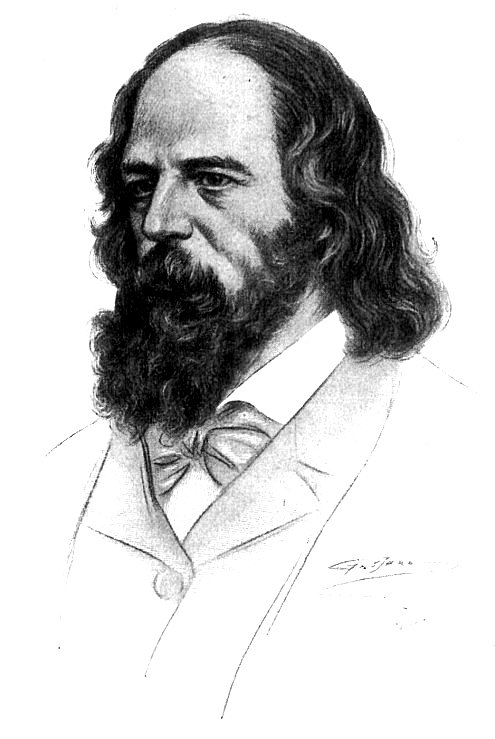
Alfred Lord Tennyson
(1809-1892)
T h e M e r m a i d
1
Who would be
A mermaid fair,
Singing alone,
Combing her hair
Under the sea,
In a golden curl
With a comb of pearl,
On a throne?
2
I would be a mermaid fair;
I would sing to myself the whole of the day;
With a comb of pearl I would comb my hair;
And still as I comb’d I would sing and say,
"Who is it loves me? who loves not me?"
I would comb my hair till my ringlets would fall,
Low adown, low adown,
From under my starry sea-bud crown
Low adown and around,
And I should look like a fountain of gold
Springing alone
With a shrill inner sound,
Over the throne
In the midst of the hall;
Till that great sea-snake under the sea
From his coiled sleeps in the central deeps
Would slowly trail himself sevenfold
Round the hall where I sate, and look in at the gate
With his large calm eyes for the love of me.
And all the mermen under the sea
Would feel their immortality
Die in their hearts for the love of me.
3
But at night I would wander away, away,
I would fling on each side my low-flowing locks,
And lightly vault from the throne and play
With the mermen in and out of the rocks;
We would run to and fro, and hide and seek,
On the broad sea-wolds in the crimson shells,
Whose silvery spikes are nighest the sea.
But if any came near I would call, and shriek,
And adown the steep like a wave I would leap
From the diamond-ledges that jut from the dells;
For I would not be kiss’d by all who would list,
Of the bold merry mermen under the sea;
They would sue me, and woo me, and flatter me,
In the purple twilights under the sea;
But the king of them all would carry me,
Woo me, and win me, and marry me,
In the branching jaspers under the sea;
Then all the dry pied things that be
In the hueless mosses under the sea
Would curl round my silver feet silently,
All looking up for the love of me.
And if I should carol aloud, from aloft
All things that are forked, and horned, and soft
Would lean out from the hollow sphere of the sea,
All looking down for the love of me.
.jpg)
Alfred Lord Tennyson poetry
kempis poetry magazine
More in: Tennyson, Alfred Lord
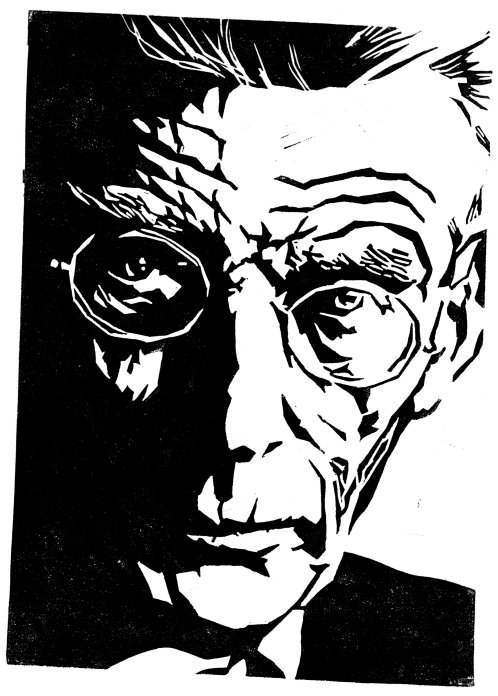
Ivo van Leeuwen:
Portrait of Samuel Beckett
(1906-1989)
fleursdumal.nl magazine – gallery of poets’ portraits
lino © ivo van leeuwen
More in: Ivo van Leeuwen, Poets' Portraits, Samuel Beckett
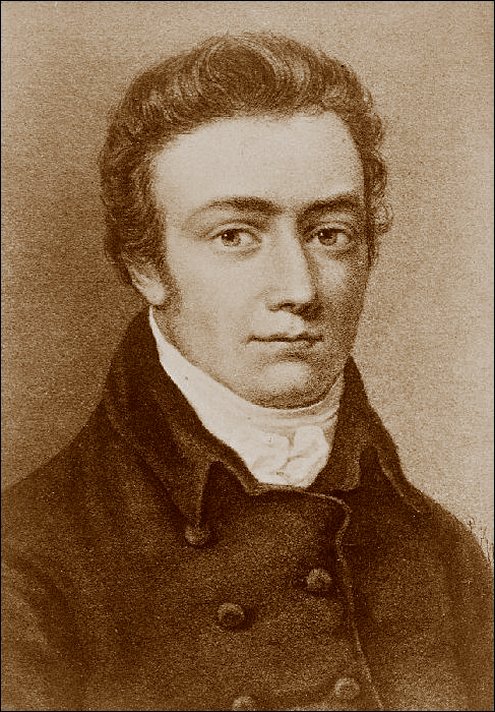
Samuel Taylor Coleridge
(1772-1834)
TO THE NIGHTINGALE
Sister of lovelorn poets, Philomel!
How many bards in city garret spent,
While at their window they with downward eye
Mark the faint lamp-beam on the kennell’d mud,
And listen to the drowsy cry of watchmen,
(Those hoarse, unfeather’d nightingales of time!)
How many wretched bards address thy name,
And hers, the full-orb’d queen, that shines above.
But I do hear thee, and the high bough mark,
Within whose mild moou-mellow’d foliage hid,
Thou warblest sad thy pity-pleading strains.
O I have listen’d, till my working soul,
Waked by those strains to thousand phantasies,
Absorb’d, hath ceas’d to listen! Therefore oft
I hymn thy name; and with a proud delight
Oft will I tell thee, minstrel of the moon,
Most musical, most melancholy bird!
That all thy soft diversities of tone,
Though sweeter far than the delicious airs
That vibrate from a white-arm’d lady’s harp,
What time the languishment of lonely love
Melts in her eye, and heaves her breast of snow,
Are not so sweet, as is the voice of her,
My Sara–best beloved of human kind!
When breathing the pure soul of tenderness,
She thrills me with the husband’s promised name!
SENTIMENTAL
The rose that blushes like the morn
Bedecks the valleys low;
And so dost thou, sweet infant corn,
My Angelina’s toe.
But on the rose there grows a thorn
That breeds disastrous woe;
And so dost thou, remorseless corn,
On Angelina’s toe.
THE EXCHANGE
We pledged our hearts, my love and I,–
I in my arms the maiden clasping;
I could not tell the reason why,
But, oh! I trembled like an aspen.
Her father’s love she bade me gain;
I went, and shook like any reed!
I strove to act the man–in vain!
We had exchanged our hearts indeed.
AN ODE TO THE RAIN
Composed Before Day-Light on the Morning Appointed for the Departure of a Very Worthy, But Not Very Pleasant Visitor, Whom It Was Feared The Rain Might Detain.
I know it is dark; and though I have lain
Awake, as I guess, an hour or twain,
I have not once open’d the lids of my eyes,
But I lie in the dark, as a blind man lies.
O Rain! that I lie listening to,
You’re but a doleful sound at best:
I owe you little thanks, ’tis true,
For breaking thus my needful rest!
Yet if, as soon as it is light,
O Rain! you will but take your flight,
I’ll neither rail, nor malice keep,
Though sick and sore for want of sleep.
But only now, for this one day,
Do go, dear Rain! do go away!
O Rain! with your dull two-fold sound,
The clash hard by, and the murmur all round!
You know, if you know aught, that we,
Both night and day, but ill agree:
For days, and months, and almost years,
Have limped on through this vale of tears,
Since body of mine, and rainy weather,
Have lived on easy terms together.
Yet if, as soon as it is light,
O Rain! you will but take your flight,
Though you should come again to-morrow,
And bring with you both pain and sorrow;
Though stomach should sicken, and knees should swell–
I’ll nothing speak of you but well.
But only now for this one day,
Do go, dear Rain! do go away!
Dear Rain! I ne’er refused to say
You’re a good creature in your way.
Nay, I could write a book myself,
Would fit a parson’s lower shelf,
Showing, how very good you are.–
What then? sometimes it must be fair!
And if sometimes, why not to-day?
Do go, dear Rain! do go away!
Dear Rain! if I’ve been cold and shy,
Take no offence! I’ll tell you why.
A dear old Friend e’en now is here,
And with him came my sister dear;
After long absence now first met,
Long months by pain and grief beset–
With three dear friends! in truth, we groan
Impatiently to be alone.
We three, you mark! and not one more!
The strong wish makes my spirit sore.
We have so much to talk about,
So many sad things to let out;
So many tears in our eye-corners,
Sitting like little Jacky Horners–
In short, as soon as it is day,
Do go, dear Rain! do go away.
And this I’ll swear to you, dear Rain!
Whenever you shall come again,
Be you as dull as e’er you could;
(And by the bye ’tis understood,
You’re not so pleasant, as you’re good;)
Yet, knowing well your worth and place,
I’ll welcome you with cheerful face;
And though you stay’d a week or more,
Were ten times duller than before;
Yet with kind heart, and right good will,
I’ll sit and listen to you still;
Nor should you go away, dear Rain!
Uninvited to remain.
But only now, for this one day,
Do go, dear Rain! do go away.
Samuel Taylor Coleridge: 4 Poems
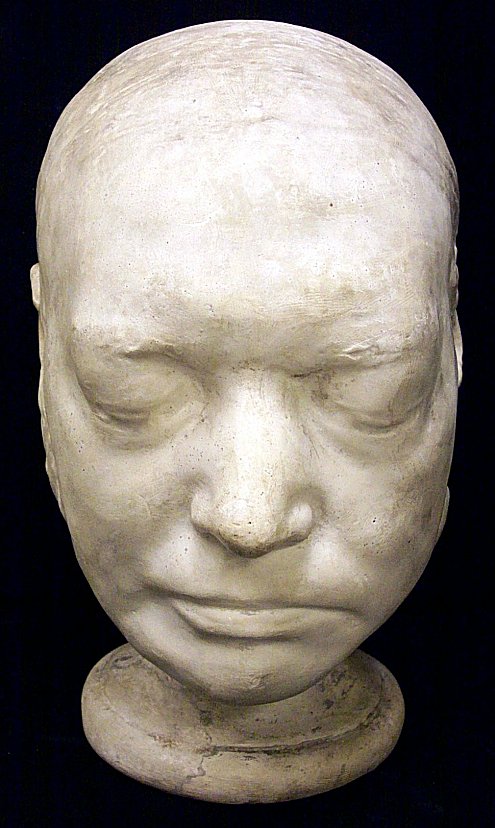
kemp=mag – kempis poetry magazine
More in: Coleridge, Samuel Taylor
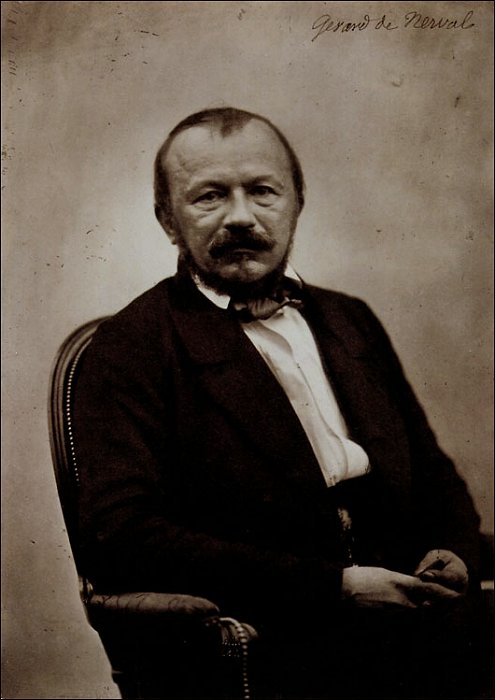
G é r a r d d e N e r v a l
(1808-1855)
Les Papillons
I
De toutes les belles choses
Qui nous manquent en hiver,
Qu’aimez-vous mieux ? – Moi, les roses ;
– Moi, l’aspect d’un beau pré vert ;
– Moi, la moisson blondissante,
Chevelure des sillons ;
– Moi, le rossignol qui chante ;
– Et moi, les beaux papillons !
Le papillon, fleur sans tige,
Qui voltige,
Que l’on cueille en un réseau ;
Dans la nature infinie,
Harmonie
Entre la plante et l’oiseau !…
Quand revient l’été superbe,
Je m’en vais au bois tout seul :
Je m’étends dans la grande herbe,
Perdu dans ce vert linceul.
Sur ma tête renversée,
Là, chacun d’eux à son tour,
Passe comme une pensée
De poésie ou d’amour !
Voici le papillon “faune”,
Noir et jaune ;
Voici le “mars” azuré,
Agitant des étincelles
Sur ses ailes
D’un velours riche et moiré.
Voici le “vulcain” rapide,
Qui vole comme un oiseau :
Son aile noire et splendide
Porte un grand ruban ponceau.
Dieux ! le “soufré”, dans l’espace,
Comme un éclair a relui…
Mais le joyeux “nacré” passe,
Et je ne vois plus que lui !
II
Comme un éventail de soie,
Il déploie
Son manteau semé d’argent ;
Et sa robe bigarrée
Est dorée
D’un or verdâtre et changeant.
Voici le “machaon-zèbre”,
De fauve et de noir rayé ;
Le “deuil”, en habit funèbre,
Et le “miroir” bleu strié ;
Voici l'”argus”, feuille-morte,
Le “morio”, le “grand-bleu”,
Et le “paon-de-jour” qui porte
Sur chaque aile un oeil de feu !
Mais le soir brunit nos plaines ;
Les “phalènes”
Prennent leur essor bruyant,
Et les “sphinx” aux couleurs sombres,
Dans les ombres
Voltigent en tournoyant.
C’est le “grand-paon” à l’oeil rose
Dessiné sur un fond gris,
Qui ne vole qu’à nuit close,
Comme les chauves-souris ;
Le “bombice” du troëne,
Rayé de jaune et de vent,
Et le “papillon du chêne”
Qui ne meurt pas en hiver !…
Voici le “sphinx” à la tête
De squelette,
Peinte en blanc sur un fond noir,
Que le villageois redoute,
Sur sa route,
De voir voltiger le soir.
Je hais aussi les “phalènes”,
Sombres hôtes de la nuit,
Qui voltigent dans nos plaines
De sept heures à minuit ;
Mais vous, papillons que j’aime,
Légers papillons de jour,
Tout en vous est un emblème
De poésie et d’amour !
III
Malheur, papillons que j’aime,
Doux emblème,
A vous pour votre beauté !…
Un doigt, de votre corsage,
Au passage,
Froisse, hélas ! le velouté !…
Une toute jeune fille
Au coeur tendre, au doux souris,
Perçant vos coeurs d’une aiguille,
Vous contemple, l’oeil surpris :
Et vos pattes sont coupées
Par l’ongle blanc qui les mord,
Et vos antennes crispées
Dans les douleurs de la mort !…
Gérard de Nerval: Les Papillons
fleursdumal.nl magazine
More in: Archive M-N, Nerval, Gérard de, Nerval, Gérard de
Thank you for reading Fleurs du Mal - magazine for art & literature